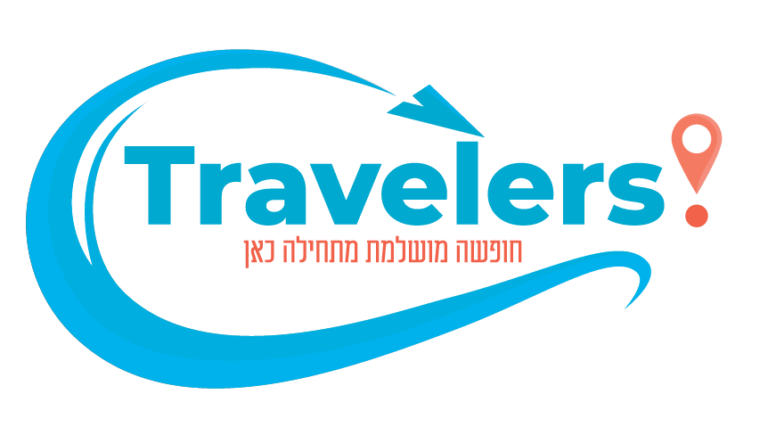Digital nomad visa Spain / Greece / Portugal / Cyprus / Italy / Europe / Thailand - what is a digital nomad visa? Taxes digital nomad? Portugal D7 visa? Everything is here!
The digital nomad lifestyle has gained significant traction in the last decade, thanks to advances in technology that allow us to work remotely. The emergence of digital nomad visas by various countries has further revolutionized this lifestyle, making it easier for digital nomads to live and work in different parts of the world. This blog post explores what a digital nomad visa is, its benefits, eligibility requirements and the top countries that offer these visas.
Setting up a digital nomad visa
A digital nomad visa is a special type of visa that allows people to live and work remotely in a foreign country for an extended period of time. It is specially designed for people who have the flexibility to work from anywhere and choose to adopt a location-independent lifestyle.
- 1. Flexibility and freedom:
A digital nomad visa offers a unique opportunity for individuals to have the freedom to work and live in different countries without the limitations of a traditional work visa. This allows them to explore new cultures, immerse themselves in different environments and experience the world while maintaining their work commitments. - 2. Legal status and compliance:
One of the key benefits of a digital nomad visa is that it provides legal status for individuals to live and work in a foreign country. This eliminates the need to constantly worry about visa restrictions and potential legal issues. Digital nomads can have peace of mind knowing they are complying with local regulations and can focus on their work and personal growth. - 3. Access to local services and amenities:
By obtaining a digital nomad visa, people gain access to a variety of local services and amenities essential to their day-to-day lives. This includes access to health facilities, banking services, transport and other infrastructure. It provides a sense of security and comfort, and allows digital nomads to seamlessly integrate into the local community and enjoy a comfortable lifestyle while pursuing their professional goals.
The Rise of the Digital Nomad Lifestyle: Why Now?
The digital nomad lifestyle has experienced a significant increase in popularity in recent years, and there are several reasons why it has become a viable option for many people. First, the advancement of technology has made working remotely easier than ever. With the availability of high-speed Internet, collaboration tools and communication platforms, professionals can now work effectively from anywhere in the world.
Second, the COVID-19 pandemic has accelerated the adoption of remote work. When companies were forced to implement telecommuting policies to ensure business continuity, many employees discovered the benefits of working from home. This shift in mindset has opened up opportunities for people to take their work on the road and explore new goals while maintaining their productivity.
In addition, the rise of freelancers and the gig economy have contributed to the popularity of the digital nomad lifestyle. Many professionals choose to work as independent contractors or freelancers, which gives them the freedom to work on their own terms and take on projects from clients around the world.
Furthermore, the growing desire for a better work-life balance has also fueled the rise of the digital nomad lifestyle. People are looking for more flexibility in their careers, wanting to prioritize experiences and personal growth over traditional nine-to-five office jobs. The digital nomad lifestyle offers an opportunity to create a harmonious balance between work and personal life, allowing people to shape their own schedules and live life on their own terms.
The benefits of a digital nomad visa
Obtaining a digital nomad visa brings many benefits for people seeking to embrace the digital nomad lifestyle. First, it provides legal clarity and peace of mind. With a digital nomad visa, people can work and stay in a foreign country legally, eliminating any concerns about overstaying or breaking immigration laws. This allows digital nomads to focus on their work and fully immerse themselves in the local culture without the constant fear of legal issues.
Second, a digital nomad visa opens up a world of opportunities for travel and exploration. With the flexibility to stay in a country for an extended period, digital nomads can truly experience the local lifestyle, immerse themselves in the culture and explore the hidden gems that might be missed during a short visit. This visa allows people to become more than just tourists, allowing them to make deeper connections with the local community and gain a richer understanding of different cultures.
What's more, a digital nomad visa often comes with additional benefits, such as access to co-working spaces, networking events and support services tailored specifically for remote workers. These resources can greatly improve productivity and provide a sense of community for digital nomads, who often work in isolation. Being part of a digital nomad ecosystem can foster collaboration, professional growth and networking opportunities, and create a supportive environment for people pursuing this lifestyle.
In addition, a digital nomad visa can offer financial benefits. Some countries with digital nomad visa programs may provide tax incentives or exemptions to remote workers, allowing them to save money and allocate their resources more efficiently. This financial advantage can contribute to a more sustainable and fulfilling digital nomad lifestyle.
Finally, a digital nomad visa can serve as a stepping stone for personal and professional growth. It provides an opportunity to gain international work experience, develop intercultural communication skills and adapt to different work environments. These experiences can enhance resumes and open up new career options, as employers increasingly value the adaptability and global perspective that digital nomads bring to the table.
Eligibility Requirements: Who Can Apply?
To apply for a digital nomad visa, there are certain eligibility requirements that individuals must meet. Although these requirements may vary from state to state, there are some common criteria that applicants must meet. First, most digital nomad visa programs require applicants to prove that they have a stable, remote source of income. This can be through freelancing, telecommuting or running an online business. A consistent income stream is essential to ensure financial stability while living as a digital nomad.
Second, applicants generally need to show proof of health insurance coverage. This ensures that they have access to medical care while in a foreign country and eases any potential burden on the local healthcare system. Health insurance coverage can be obtained through private insurance providers or through international health insurance plans specifically designed for digital nomads.
Furthermore, applicants may need to provide proof of a clean criminal record. This is to ensure the safety and security of the host country and its citizens. Background checks are usually performed as part of the application process, and any criminal record may affect eligibility for a digital nomad visa.
In addition, some countries may require proof of accommodation during the intended stay. This can be in the form of a rental agreement, hotel reservation or host invitation letter. The purpose of this requirement is to ensure that the applicants have a place to stay and will not be a burden on the local housing market.
"Is a digital nomad visa right for me?"
Deciding whether a digital nomad visa is the right choice for you requires careful consideration of your personal circumstances and lifestyle preferences. First, assess your work situation and determine if you have a job or business that can be done remotely. If you have the flexibility to work from anywhere and enjoy the freedom of being location independent, a digital nomad visa can be a great fit.
Consider your comfort level with living and working in different countries. If you thrive on new experiences, cultural immersion and the excitement of exploring new places, a digital nomad visa can provide the perfect opportunity to satisfy your wanderlust. However, if you prefer the stability, routine and familiarity of your home country, this lifestyle may not suit you.
Assess your financial situation and your stability. While the digital nomad lifestyle offers flexibility and potential for adventure, it's important to have a reliable source of income to support yourself while living abroad. Make sure you have a solid financial plan and are prepared for any unexpected expenses that may pop up.
Consider your personal and professional goals. If you have specific career aspirations or long-term plans that require you to be in a permanent location, a digital nomad visa may not suit your goals. On the other hand, if you value freedom, flexibility and the ability to work on your own terms, a digital nomad visa can provide the ideal platform to pursue your passions while exploring the world.
Finally, think about your support network. Living as a digital nomad can be exciting, but it also means being away from family and friends for extended periods. Consider how important it is to you to have a strong support system nearby and whether you are comfortable building new connections and friendships in different countries.
Understanding the application process
Applying for a digital nomad visa involves a series of steps and requirements that vary depending on the country you choose. First, research the specific visa requirements of your desired destination. This may include providing proof of employment, a clean criminal record and proof of financial stability. It is important to carefully review the application guidelines to ensure you meet all the necessary criteria.
Next, collect all the required documents. This usually includes a passport with a minimum validity period, recent passport size photographs, a completed application form and any supporting documents such as bank statements or employment letters. It is important to make sure that all documents are updated and meet the specific requirements outlined by the immigration authorities.
Once you have all the necessary documents, submit your application. Some countries allow online applications, while others may require you to submit your application in person at an embassy or consulate. Pay close attention to any fees associated with the application process and be sure to make the necessary payments within the specified time frame.
After you submit your application, there is usually a processing period during which the immigration authorities will review your documents and make a decision. The duration of this process may vary depending on the country, so it is important to plan ahead and submit the request well in advance of the intended travel dates.
If your application is approved, you will receive your digital nomadic visa, which allows you to live and work in the destination of your choice for a specified period. It is important to familiarize yourself with the visa conditions and comply with all the regulations established by the local authorities to avoid potential problems during your stay.
Top countries offering digital nomad visas
The digital nomad lifestyle has gained immense popularity in recent years, prompting several countries to introduce special visa programs tailored to remote workers. These visas allow people to live and work in a foreign country legally, and offer a unique opportunity to experience new cultures while maintaining their professional career. Here are some of the top countries that have introduced digital nomad visas:
- 1. Estonia:
Estonia, known for its advanced digital infrastructure and technologically advanced environment, was one of the pioneers in introducing a digital nomad visa. The visa allows remote workers to live in Estonia for up to a year and take advantage of the country's innovative electronic services. - 2. Barbados:
With its stunning beaches and favorable tax environment, Barbados has become an attractive destination for digital nomads. The Barbados Welcome Stamp allows remote workers to live and work on the island for up to a year, giving them an opportunity to enjoy the Caribbean lifestyle while staying connected to their work. - 3. Portugal:
Portugal's startup scene and vibrant culture have made it a popular choice for digital nomads. The country offers the D7 visa, intended for retirees and remote workers. This allows people to live and work in Portugal for extended periods, enjoying the country's rich history, beautiful landscapes and affordable cost of living. - 4. Germany:
Germany has launched the freelancer visa, designed especially for freelancers and the self-employed. The visa allows remote workers to live and work in Germany for up to three years, and provides access to an established business ecosystem and diverse cultural experiences. - 5. Costa Rica:
Costa Rica, known for its natural beauty and environmentally friendly way of thinking, offers the remote worker visa. This visa allows people to work remotely in the country for up to two years, giving them the opportunity to explore its lush rainforests, breathtaking beaches and vibrant wildlife.
Bali: a tropical paradise for digital nomads
Bali, the magical Indonesian island, has become a popular destination for digital nomads in recent years. Known for its stunning scenery, vibrant culture and warm hospitality, Bali offers a unique blend of relaxation and inspiration for remote workers.
One of Bali's main attractions is its affordable cost of living, making it an ideal destination for those looking to stretch their budget while enjoying a high quality of life. Accommodation options range from budget-friendly guesthouses to luxurious villas, catering for different preferences and budgets.
The island's beautiful beaches, such as Kuta, Seminyak and Canggu, provide the perfect backdrop for digital nomads to work and relax. With reliable internet connectivity available in most areas, remote workers can set up their laptops at beach cafes and enjoy breathtaking views while completing their tasks.
Bali's vibrant expat community also adds to its appeal as a digital nomad hotspot. The island is home to many co-working spaces where like-minded people can connect, collaborate and find support. These spaces often host events and workshops, fostering a sense of community and providing opportunities for professional growth.
Beyond work, Bali offers a wealth of cultural experiences and natural wonders to explore during downtime. From visiting ancient temples such as Tana Lot and Uluwatu to participating in traditional Balinese ceremonies, there are endless opportunities to immerse yourself in the island's rich heritage.
For adventurous souls, Bali's lush jungles, rice terraces and volcanic landscapes offer a playground for hiking, cycling and exploring. Located in the interior of the island, Ubud is a haven for health enthusiasts and spiritual seekers, offering yoga retreats, meditation centers and holistic healing practices.
Estonia: pioneers of the digital nomadic visa
Estonia has emerged as a pioneer in the world of digital nomad visas, being one of the first countries to introduce a dedicated visa program for remote workers. Recognizing the growing trend of location-independent professionals, Estonia launched its digital nomad visa in 2020, allowing people to live and work in the country for up to a year.
One of the main advantages of Estonia's digital nomad visa is its simplicity and efficiency. The application process is simple, and the government aims to process applications in just a few weeks. This efficient approach makes it easy for digital nomads to plan their stay and start working in Estonia without unnecessary delays.
Estonia's digital nomad visa also offers a variety of benefits to those eligible. Visa holders have access to the country's strong digital infrastructure, including secure and reliable internet connectivity. In addition, they can take advantage of Estonia's famous e-program, which provides access to a variety of digital services and opportunities for entrepreneurs.
Another noteworthy aspect of Estonia's digital nomad visa is the country's commitment to innovation and technology. Known as the birthplace of Skype, Estonia has a thriving startup scene and is considered one of the most digitally advanced countries in the world. This creates a stimulating environment for digital nomads, with opportunities for networking, collaboration and professional growth.
Furthermore, Estonia's natural beauty and rich cultural heritage add to its appeal as a destination for digital nomads. From the charming medieval streets of the capital city Tallinn, to the picturesque countryside dotted with lakes and forests, Estonia offers a wide range of experiences for those looking for a work-life balance.
Barbados: sun, sea and connectivity
Known for its pristine beaches, vibrant culture and warm hospitality, Barbados has also joined the Nomad Visa digital bandwagon. This Caribbean paradise offers a unique opportunity for remote workers to combine work with a tropical lifestyle. With its year-round sunshine, clear waters and lush landscapes, Barbados provides an idyllic backdrop for digital nomads looking to escape the hustle and bustle of city life.
But it's not just the stunning natural beauty that makes Barbados an attractive destination for digital nomads. The country has invested heavily in its digital infrastructure, which ensures reliable and fast internet connectivity throughout the island. This means that remote workers can get their work done smoothly while enjoying the island's relaxed atmosphere and breathtaking views.
The Barbados Digital Nomad visa program, officially known as Barbados Welcome, allows individuals and families to live and work in Barbados for up to 12 months. The visa is open both to employees of companies outside of Barbados and to freelancers who can work remotely. This flexibility makes it an attractive option for a wide variety of remote workers.
In addition to the practical benefits, living in Barbados offers a unique cultural experience. The island is known for its vibrant music scene, rich history and diverse culinary offerings. Digital nomads can immerse themselves in local traditions, explore historic sites and indulge in delicious Caribbean cuisine during their stay.
Moreover, Barbados is a popular hub for entrepreneurs and professionals in various industries. The island hosts networking events, conferences and workshops, providing many opportunities for digital nomads to connect with like-minded people and expand their professional networks.
How much does a digital nomad visa cost?
When considering a digital nomad visa, one important factor to consider is the cost involved in obtaining and maintaining the visa. While the specific costs may vary depending on the country offering the visa, there are generally three main categories of expenses to consider:
Application fees, visa fees and living costs.
- 1. Application fee:
Most countries require digital nomads to apply for a visa. This application process often involves filling out forms, providing necessary documentation and sometimes conducting interviews or background checks. Application fees can range from several hundred dollars to several thousand, depending on the state. - 2. Visa fees:
Once the application is approved, there are usually visa fees that must be paid before the visa is issued. These fees may vary greatly, depending on the duration of the visa and the country offering it. Some countries may charge a flat fee for the entire duration of the visa, while others may charge tiered prices based on length of stay. - 3. Living costs:
In addition to the fees associated with obtaining the visa, digital nomads should also consider the cost of living in the country where they plan to live. This includes expenses such as accommodation, transportation, food, healthcare and other daily necessities. The cost of living can vary greatly depending on location, with some countries paying more than others.It is important to research and budget for these costs before committing to a digital nomad visa. Consider factors such as the exchange rate, the local cost of living and any additional expenses specific to the country. It is also worth noting that some countries may require proof of sufficient funds or the purchase of health insurance as part of the visa requirements.
The potential disadvantages of a digital nomad visa
While a digital nomad visa offers many advantages, it is important to consider the potential disadvantages before making a decision. One major concern is the instability and uncertainty that comes with constantly moving from one country to another. Digital nomads may find it challenging to establish a sense of community or build long-term relationships due to their transient lifestyles. In addition, living in different countries means adapting to new cultures, languages and legal systems, which can be overwhelming and requires constant adaptation.
Another downside is the potential impact on personal and professional relationships. Being constantly on the move can strain relationships with family and friends, as it can be difficult to maintain regular contact and physical presence. Moreover, the nature of remote work may require digital nomads to work odd hours or across time zones, making relationships and work-life balance even more difficult.
Furthermore, digital nomads may face challenges related to taxation and legality. Each country has its own tax laws and regulations, and navigating them can be complex. Digital nomads may need to consult with tax professionals to ensure compliance and avoid any legal issues. In addition, some countries may have restrictions on the types of work that can be performed under a Digital Nomad visa, limiting opportunities for certain occupations or industries.
Finally, the instability and routine can take a toll on mental health and general well-being. Being constantly on the move and adapting to new environments can be stressful and exhausting. Digital nomads may experience feelings of loneliness, isolation and burnout, as they often have to rely on themselves for support and navigate unfamiliar situations alone. It is important for digital nomads to prioritize self-care and establish routines and coping mechanisms to maintain their well-being.
The impact of COVID-19 on the digital nomad visa
The COVID-19 pandemic has had a significant impact on the digital nomad visa landscape, bringing both challenges and opportunities for remote workers seeking to live and work abroad.
- 1. Temporary suspension of programs:
Many countries have temporarily suspended or modified their digital nomad visa programs in response to the pandemic. Travel restrictions, lockdown measures and public health and safety concerns have led to the temporary closure or limited availability of these visa options. Potential digital nomads have had to put their plans on hold or explore alternative options. - 2. Increased demand for remote work:
The pandemic has accelerated the shift to remote work, with many companies adopting flexible work arrangements to ensure business continuity. This increased demand for remote work opportunities has also created an increase in interest among people seeking to adopt the digital nomad lifestyle. As a result, some countries have adjusted their visa policies to address this growing demand and attract remote workers. - 3. Adoption of digital nomads as economic contributors:
In light of the economic impact caused by the pandemic, some countries have recognized the potential benefits of attracting digital nomads. These people can bring in foreign currency, support local businesses and contribute to the local economy while adhering to public health guidelines. As a result, several countries have introduced or expanded their digital visa programs for nomads to take advantage of this potential source of economic growth.However, it's important to note that the ongoing pandemic also poses challenges for digital nomads. Travel restrictions, quarantine requirements and the ever-changing nature of the virus can disrupt plans and create uncertainty. Digital nomads may need to be prepared for potential disruptions to their travel and work arrangements, as well as the possibility of sudden changes in visa policies or regulations.
Future Trends: What's Next for the Digital Nomad Visa?
As the world continues to adapt to the changing landscape of work and travel, it is intriguing to speculate on the future trends and possibilities for the digital nomad visa. Here are some potential developments that could shape the future of this visa category.
- 1. Expansion of digital nomad visa programs:
With the success and popularity of existing digital nomad visa programs, it is likely that more countries will introduce their own versions in the coming years. Governments may recognize the economic benefits and the potential to attract skilled remote workers, leading to the expansion of these visa options around the world. - 2. Cooperation and standardization:
As more countries embrace the digital nomad lifestyle, there may be a push for cooperation and standardization between countries. This could involve creating uniform requirements, efficient submission processes and mutual recognition of digital nomad visas. Such cooperation will make it easier for digital nomads to navigate different countries and enjoy a smoother experience. - 3. Friendly infrastructure for remote work:
Countries seeking to attract digital nomads may invest in developing remote work-friendly infrastructure. This can include the availability of co-working spaces, reliable internet connectivity and community support networks tailored specifically for remote workers. Creating a suitable environment for remote work will be a key factor in attracting digital nomads. - 4. Special visa programs:
In addition to general digital nomad visas, we may see the emergence of specialized visa programs that serve specific industries or skill sets. For example, countries can introduce technology-focused digital nomad visas to attract professionals in the technology sector. This will allow countries to target specific talent pools and leverage their expertise to boost local economies.5. Integration of digital nomads in local communities:
As digital nomad visas become more common, countries may focus on integrating digital nomads into local communities. This can include organizing networking events, cultural exchanges and opportunities for digital nomads to contribute to local projects or initiatives. By fostering a sense of community and belonging, countries can create a more enriching experience for digital nomads.
"The world is a book, and those who don't travel read only one page." – St. Augustine: This application is about the lifestyle of digital nomads
St. Augustine's famous quote resonates deeply with the digital nomad lifestyle. By adopting this way of life, people have the opportunity to explore the world and immerse themselves in different cultures, languages and experiences. This allows them to go beyond the limitations of their familiar environment and truly expand their horizons. Just as reading a single page in a book limits the understanding of the whole story, staying in one place limits one's perspective on the world. The digital nomad lifestyle encourages people to turn the pages of the world and embark on a journey of personal and professional growth.
Digital nomads have the unique privilege of being able to work from anywhere, which allows them to constantly discover new places and gain a deeper understanding of the world. They have the freedom to explore diverse landscapes, taste exotic foods and connect with people from all walks of life. By immersing themselves in different cultures and environments, digital nomads gain a broader perspective on global issues, develop empathy and become more adaptable individuals.
Moreover, the digital nomad lifestyle encourages a sense of curiosity and continuous learning. Traveling to new destinations presents opportunities to learn about history, art, architecture and natural wonders firsthand. It allows digital nomads to challenge their assumptions, expand their minds, and develop a more nuanced understanding of the world. By constantly seeking out new experiences, digital nomads enrich their lives by drawing memories and stories that can never be achieved by staying in one place.
In addition to personal growth, the digital nomad lifestyle also offers professional benefits. By working remotely, digital nomads can connect to global markets, collaborate with international colleagues and gain exposure to diverse work environments. This exposure improves their skill set, creativity and problem-solving abilities, making them valuable assets to employers and clients.
There is no doubt that digital nomad visas are changing the way we work and live. They provide a legal framework for digital nomads to live and work in a foreign country, opening up opportunities for cultural exchange, global networking and personal growth. As more countries join the bandwagon, digital nomads will have even more options to choose from. However, it is important to carefully consider the requirements, advantages and potential disadvantages of each visa before making a decision.



















